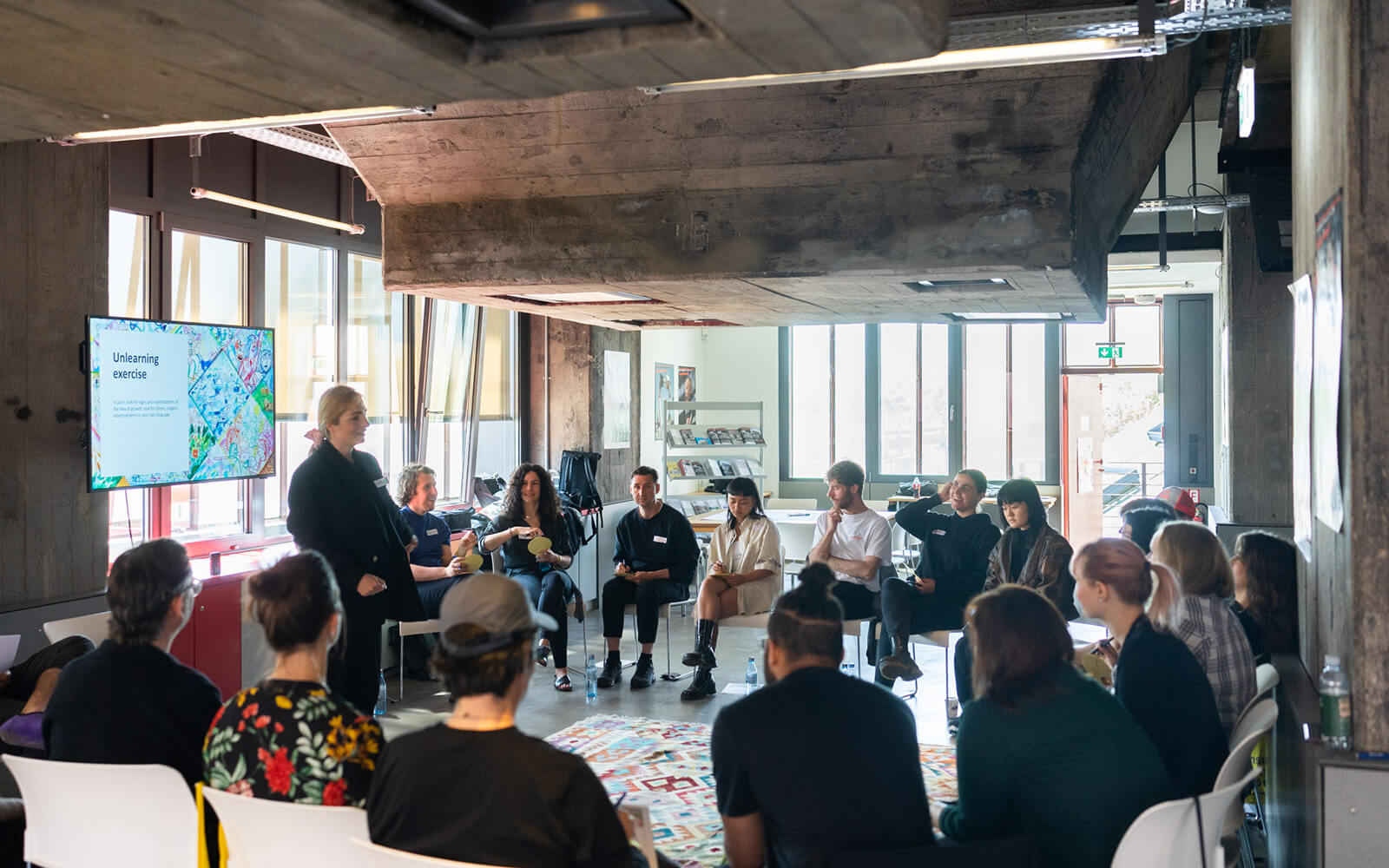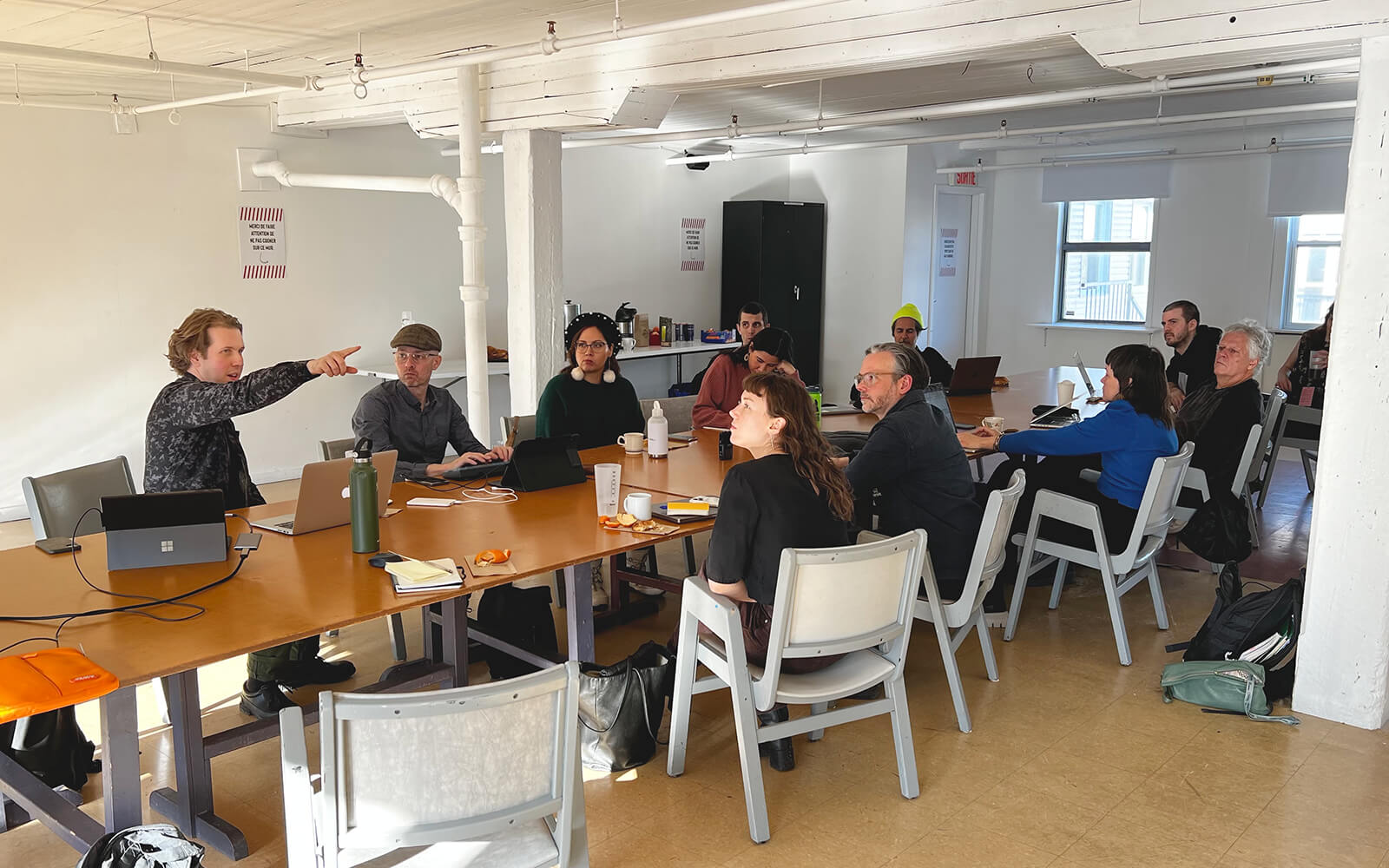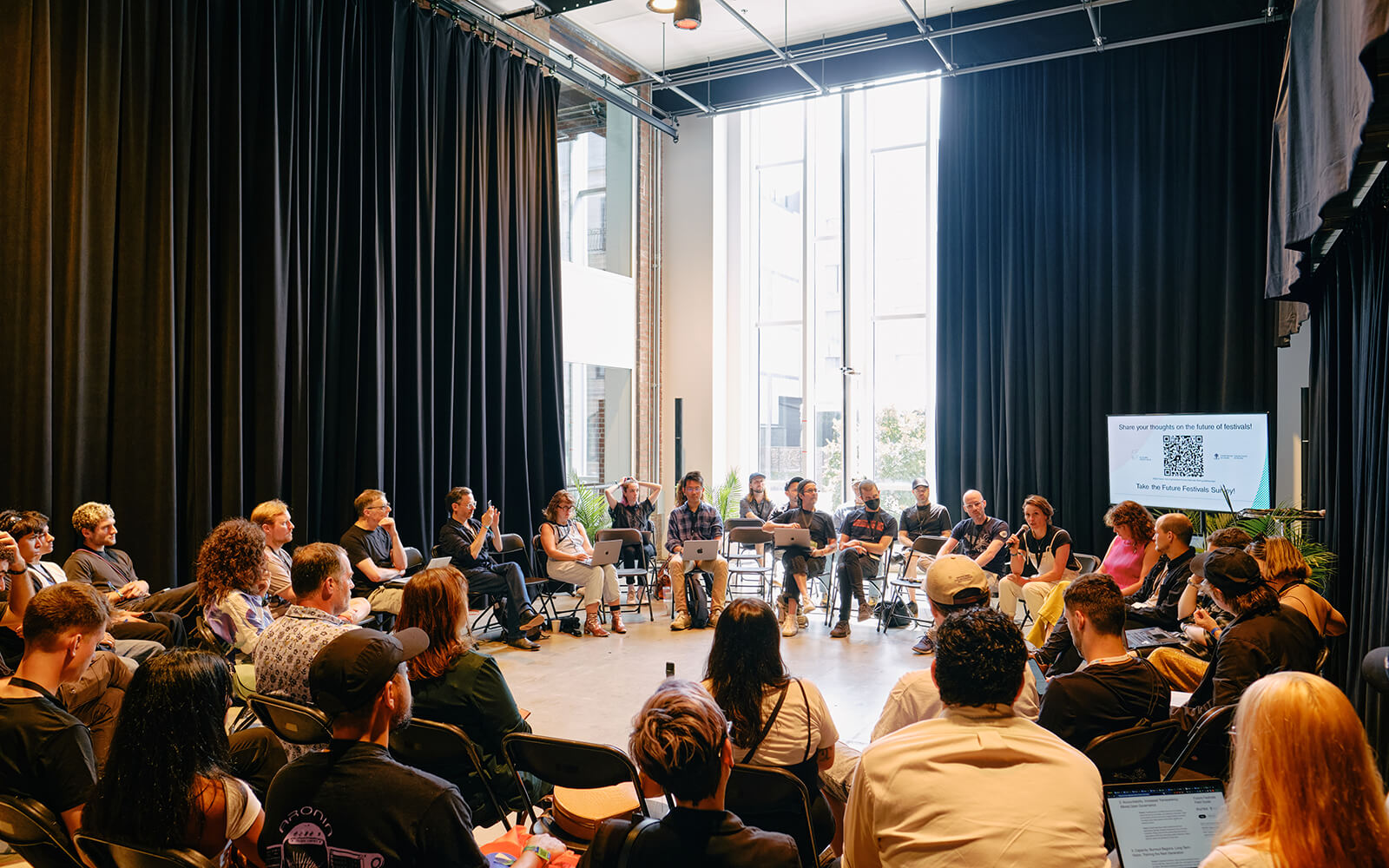Future Festivals Field Guide: Wiktoria Furrer and René Inderbitzin Shred Neoliberal Sustainability Rhetoric
“Energy efficiency improvements and the transition to renewables are important, but not enough to achieve sustainability.”
Wiktoria Furrer and René Inderbitzin are sustainability researchers and educators at the Zurich Knowledge Center for Sustainable Development (ZKSD). Furrer (who since joined the FHNW School of Education as Chair of Art and Theater Education) studied political science and cultural media studies, and holds a PhD in cultural analysis. Inderbitzin holds a bachelor’s in natural resource science and a master’s in sustainability science.
Q: Compared to concepts like degrowth and environmental justice, eco-sufficiency is one of the lesser-known terms in the sustainability conversation. What does it stand for and why is it important as a strategy?
A: Eco-sufficiency complements efficiency and consistency strategies, the two main approaches to countering the compounding ecological crises created by land use, resource overconsumption, and burning fossil fuels. Whereas efficiency reduces the energy and resource footprint during the production and lifetime of a product, consistency introduces new technologies and processes that are in line with nature, like renewables and circularity. Both these strategies are important, but they’re not enough to achieve sustainability. Efficiency improvements are cancelled out by growing demand—a process known as the rebound effect—while consistency improvements are slow and ever-reliant on resource extraction.
Sufficiency addresses these shortcomings by advocating for an overall reduction of our energy and resource use. As a strategy, it is quite straightforward: sufficiency means that we consume according to our needs, not wants, and live what researchers Uwe Schneidewind and Angelika Zahrnt call “the good life” within the limits of the eco-sphere. In addition to reducing consumption, sufficiency encourages the transition to a sharing economy with a strong emphasis on repair and reuse. This involves ‘unlearning’ neoliberal beliefs rooted in the myth of infinite growth, the creation of new social practices, and the adoption of new role models. To maintain our quality of life and improve our overall well-being, we need to prioritize non-material wealth, like happiness or time spent with friends and family.
It’s worth noting that the implementation of eco-sufficiency strategies is particularly important in the Global North. It’s here where, today and historically, the majority of resources are being consumed, while people in the Global South face the brunt of the consequences.
Sufficiency addresses these shortcomings by advocating for an overall reduction of our energy and resource use. As a strategy, it is quite straightforward: sufficiency means that we consume according to our needs, not wants, and live what researchers Uwe Schneidewind and Angelika Zahrnt call “the good life” within the limits of the eco-sphere. In addition to reducing consumption, sufficiency encourages the transition to a sharing economy with a strong emphasis on repair and reuse. This involves ‘unlearning’ neoliberal beliefs rooted in the myth of infinite growth, the creation of new social practices, and the adoption of new role models. To maintain our quality of life and improve our overall well-being, we need to prioritize non-material wealth, like happiness or time spent with friends and family.
It’s worth noting that the implementation of eco-sufficiency strategies is particularly important in the Global North. It’s here where, today and historically, the majority of resources are being consumed, while people in the Global South face the brunt of the consequences.
“Eco-sufficiency means that we consume according to our needs, not wants, and prioritize non-material wealth, like happiness or time spent with friends and family.”
Q: As researchers at the Zurich Knowledge Center for Sustainable Development, you’ve been working on charting “Pathways to Sufficiency.” What do these pathways look like, exactly? And who are they for?
A: “Pathways to Sufficiency” is the name of the research project initiated by informatics professor Lorenz Hilty and co-lead by Dr. Jeannette Behringer at the University of Zurich. It is carried out at the Zurich Knowledge Center for Sustainable Development (ZKSD) and funded by the Hamasil Foundation. As part of that research, we are developing a workshop format that brings people together and lets them develop sufficiency-oriented futures based on what they think constitutes a ‘good life.’ We hope that these exercises will serve as a first step on the pathway to sufficiency. In our workshops, we are primarily interested in the exchange of ideas, the co-creation of futures, and collective learning as we explore strategies to actualize these futures together. The workshops are designed for a wide range of audiences but can also be adapted to specific groups. So far, we have hosted workshops for the general public and more focused ones for elementary schools, art and design students, participants of academic conferences, and, most recently, the NEW NOW Festival. To make our methods and findings accessible to a larger audience, we are currently working on a series of publications.
How much is enough? Wiktoria Furrer and René Inderbitzin lead festival makers and members of the public through a series of sufficiency exercises at NEW NOW Festival.
Q: Between the ideological grip of neoliberalism and Western culture that celebrates consumption—what, in your experience, is the biggest hurdle to sufficiency?
A: The primary problem is an economic system that relies on infinite growth. It’s a belief system that permeates society and prevents us from making the big structural changes necessary for bringing human civilization and the planet back into balance. On an individual level, we found that the main hurdle to reducing one’s footprint is not a lack of knowledge or motivation but a lack of time, which in itself is a result of extractive labour practices.
Q: Can you share a simple exercise to help our readers identify sufficiency potentials in their own lives and creative practice? In other words: What’s a good first step?
A: The need for action is indeed dire. But how can we ask individuals to implement sufficiency into their lives when our governing systems make it so hard to do so? This is called the individualization of responsibility and is, in fact, a neoliberal tactic. That’s why we recommend taking collective action through organizations and neighbourhood initiatives, by voting, and being politically active. These are powerful steps with much greater leverage than making small changes in one’s personal life. Nevertheless, we should also critically reflect on our everyday choices regarding housing, mobility, food, or other forms of consumption. This can be a self-reflective exercise that centres ourselves, as opposed to comparing ourselves with others.
Future Festivals Field Guide
Future Festivals Field GuideExplore more of "Future Festivals Field Guide:"
→ HOLO.mg/stream/
→ HOLO.mg/future-festivals-field-guide/
Alexander Scholz
Alex is a Berlin-based writer, artistic director, and cultural worker. As the founder and creative director of HOLO, he helps produce and disseminate knowledge on disciplinary interstices, artistic research, and cultural transformations in the digital age. Over the years, he curated exhibitions, conferences, and educational programmes for organizations and festivals including A.C.C. (KR), Mapping (CH), MUTEK (CA), and NODE Forum for Digital Arts (DE).









